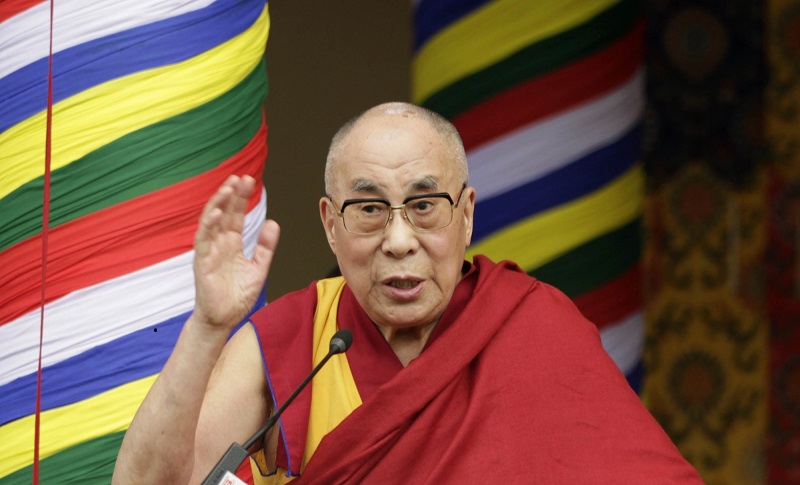The President of the Tibetan Government-in-Exile (TGIE), Penpa Tsering has said the Tibetan spiritual leader Dalai Lama would like to meet Prime Minister Narendra Modi once the pandemic is under control. Tsering shared this with Indian news agency ANI.
Tsering told ANI that the Dalai Lama, who has been living in Dharamsala, would like to visit Delhi and meet up with the Prime Minister as well as other leaders.
A meeting with the Prime Minister would be a game-changer, as it would signal India's re-think on the one-China principle. In the past, the Dalai Lama, a Nobel Prize winner, has been a guest of former US President Barack Obama and a regular visitor to the European parliament.
Last week, Modi had greeted the Tibetan spiritual leader on the occasion of his 86th birthday and had spoken with him over telephone. The Prime Minister tweeted: "Spoke on phone to His Holiness the @DalaiLama to convey greetings on his 86th birthday. We wish him a long and healthy life."
Spoke on phone to His Holiness the @DalaiLama to convey greetings on his 86th birthday. We wish him a long and healthy life.
— Narendra Modi (@narendramodi) July 6, 2021
The Ministry of External Affairs downplayed the greeting by saying: “It is the consistent policy of the government of India to treat his holiness the Dalai Lama as an honoured guest in India and as a respected religious leader who enjoys a large following in India”. However, the tweet caused a flutter among the Tibetan circles in India.
Tsering also said that this is perhaps the first time that Modi's tweet has been made public though the Prime Minister has been wishing the Dalai Lama for many years just like the previous Indian prime ministers.
Tsering, a known advocate of taking the middle path with China, said that talks with China are possible if it allows the Dalai Lama to visit Tibet on a pilgrimage.
He told ANI: "His holiness wishes to visit China and also his birthplace and the capital of Tibet, Lhasa, whenever that is possible because it is dependent on them we cannot decide for the Chinese government. Therefore, we made that appeal and if it works then I believe that there could be a meeting and that meeting could create a roadmap for future resolution of the Sino-Tibet conflict in a mutual agreement about a nonviolent lasting solution for Tibet".
Many Tibetans advocate partial autonomy, if not complete independence from China, and support talks with the communist government. The Tibetans and the Chinese had held eight rounds of talks between 2002-2010 till all communication snapped.
Tsering would once again like to re-start the dialogue with China.
The past few months have brought important developments for the Tibetans. The US passed a bill advocating financial and moral support to the Tibetan cause. It also warned China not to announce the successor for the Dalai Lama. The US administration has also started scholarships to support the Tibetan diaspora in various disciplines.
The exiled Tibetans, spread worldwide, elected their new government through a democratic election process spanning many months—an act they revel in, considering that it is diametrically opposite China’s communist governance. Penpa Tsering was elected the new President—also called the Sikyong—along with a new parliament while the earlier president Lobsang Sangay relinquished office after two terms.
Under occupation for nearly seven decades, the Tibetans face electronic surveillance, cultural cleansing as well as an assault on their educational, linguistic, cultural and religious practices by the Chinese government. The Communist Party of China has demolished thousands of monasteries and forced patriotic education on Buddhist monks and nuns.
The new developments have funnelled more energy and enthusiasm among the Tibetan community even as China finds itself ostracised among the global community due to a spate of aggressive tactics against neighbours.
Read More: Photo feature: Tibetans distribute masks and food on the Dalai Lama's 86th birthday




















